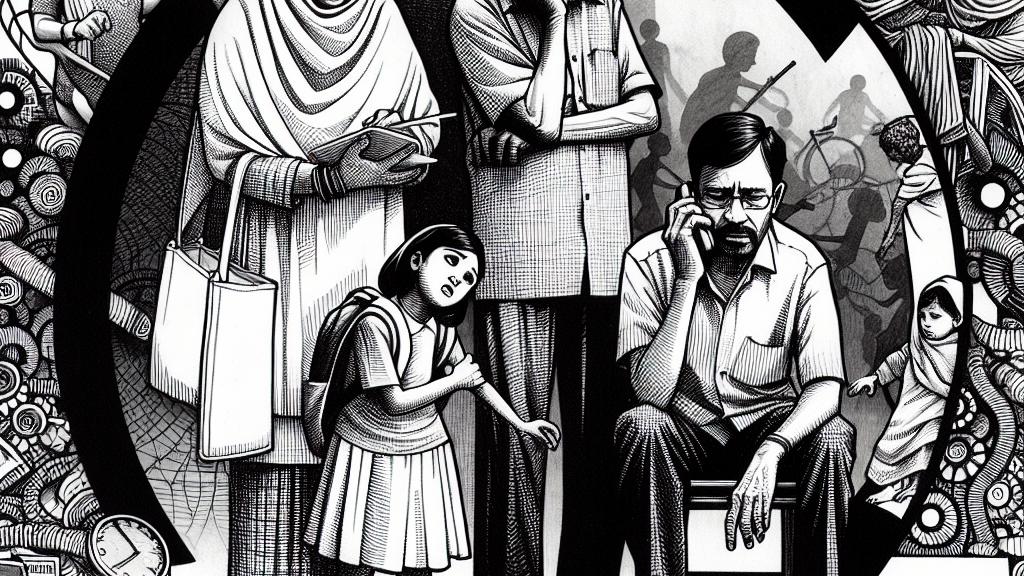Understanding How Income Inequality Affects Health and Education
Overview
- Income inequality has serious implications for health service access and educational attainment.
- The cycle of poor health and education amplifies economic struggles for many families.
- By understanding these links, we can inspire support for meaningful policy reforms.

The Connection Between Income and Well-Being
In the United States, the stark reality of income inequality significantly impacts countless people across the nation. It’s not just about how much money someone makes; it can determine the very quality of life they lead. For instance, when families earn low wages, they often can’t afford proper health insurance. Consequently, children frequently miss school due to illness, which not only affects their education but hinders their future job prospects as well. This lack of access becomes a heartbreaking cycle—one where generations are caught in a trap of reduced opportunities and diminished health.
Health Disparities: A Vicious Cycle
Consider this: living in a neighborhood without grocery stores that sell fresh fruits and vegetables can dramatically affect a family's diet. Instead, these families may rely on fast food due to its low cost and convenience, which tends to lead to serious health issues, such as obesity and diabetes. Moreover, when a parent’s health declines, they are often forced to take time off work. This not only leads to lost wages but also creates a cycle of financial insecurity. Did you know that the wealthiest 1% of Americans hold an average income 139 times greater than that of the bottom 20%? This staggering figure emphasizes how income disparities trap families and perpetuate disadvantages in both health and education, making it exceedingly difficult for them to escape the cycle of poverty.
The Need for Redistributive Policies
Here’s the essential point: bringing attention to the connection between income inequality, health, and education can motivate individuals to advocate for change. When people are informed, they are more likely to endorse redistributive policies, such as fair taxes and increased funding for healthcare and education. Imagine a world where economic reform aims not merely to alleviate individual suffering but to create a supportive community environment that nurtures health and educational access for all. Therefore, the goal should be clear: we must not only strive to uplift individuals from poverty but also to build a powerful, equitable society where every person has the opportunity to thrive and contribute to their community.

Loading...